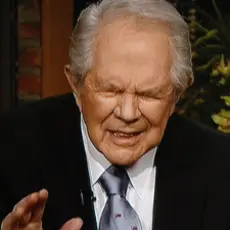The Los Angeles Times recently reported on the reappearance of a somewhat rusty tactic in the anti-abortion movement’s tool belt: attempts to pass a “Human Life Amendment” to several state constitutions, which would purportedly grant full “personhood” rights beginning at conception. Such an end-run would circumvent a protracted political debate—which they could lose, as they did when South Dakota voters rejected an abortion ban last year—and likely end up in federal court, where activists hope new right-wing Supreme Court justices will take the opportunity to overturn Roe v. Wade. But the major national religious-right groups have preferred a more incremental strategy of advancing less-sweeping restrictions and promoting Republican politicians who promise to appoint anti-abortion judges, leaving absolutist activists out in the cold, as the Times notes:
For the most part, the campaigns are run by local activists, with little support or funding from big national antiabortion groups. Similar efforts have failed in the past: Proponents in Michigan could not collect enough signatures to put a personhood measure on the ballot in 2006. The Georgia proposal stalled in the Legislature this year.
Indeed, Clarke Forsythe and Denise Burke of Americans United for Life—a legal group active since the 1970s—published an article in National Review today calling the HLA “a losing move for the pro-life movement.” While AUL is hardly an influential group in this decade, its anti-HLA commentary recalls the anti-abortion movement’s in-fighting in the 1980s and 1990s over militant clinic protests (and the occasional murder of doctors). Although AUL was happy to represent militant activist Joseph Scheidler and his Pro-Life Action League in court, at the same time it pooh-poohed the frenzied “Summer of Mercy” protest in Wichita in 1991. “[I]t is better to show the public that [the abortion provider’s] practices are unlawful than to engage in tactics that attract attention to the unlawfulness of pro-lifers,” cautioned AUL’s president.
Earlier this year, this schism over tactics broke out when militant activists posted ads denouncing religious-right leader James Dobson for his support of the “Partial Birth Abortion Ban.” Two separate factions of Operation Rescue, once one of the major militant groups, attacked each other over the ad, as did National Right to Life and its Colorado affiliate. The dispute put the vision in stark relief: The NRLC said it was “sophisticated enough to know we're not going to win a total victory all at once,” while Colorado Right to Life President Brian Rohrbough accused the incrementalists of selling out to politics:
"What happened in the abortion world is that groups like National Right to Life, they're really a wing of the Republican Party, and they're not geared to push for personhood for an unborn child -- they're geared to getting Republicans elected," he said.
The spat over the Human Life Amendment repeats this disagreement. Here’s Rohrbough, now pushing an HLA in Colorado:
"The concept that we're going to elect judges who will change everything has failed," said Brian Rohrbough, a former president of Colorado Right to Life. "The logical thing is to start with personhood. . . . It's the only legitimate tactic that does not involve a compromise."
At the same time, the schism is coming out in the Republican presidential primary. When Pat Robertson endorsed Rudy Giuliani, citing the candidate’s promise to appoint right-wing Supreme Court justices, Operation Rescue founder Randall Terry came out of the woodwork to stage a protest of Robertson’s CBN. “Is Pat Robertson so terrified of Hillary that he will betray the Right to Life, Marriage, Self-defense, and The Church Herself as long as a fellow Republican snatches power?” asked Terry. “Rudy may wade through the blood of the innocent to reach the throne; he may be a stench in the nostrils of Angels – and the nostrils of devils for that matter – but at least Rudy is a stench that comes from the GOP stable – and he's not Hillary. Is this the conviction we expect from Christian Leaders?” Terry then planned a “civil disobedience” rally in Philadelphia with an absolutist candidate, long-shot Alan Keyes.
And when the National Right to Life endorsed Fred Thompson—days after Thompson rejected a federal Human Life Amendment, which activists have fought tooth and nail to keep in the GOP platform—the group was accused of selling out. “I think in all probability the Thompson people were engaged with the National Right to Life people in financial dealing,” said Paul Weyrich. NRLC said it was a matter of electability. For his part, Mitt Romney is trying to shore up his position on the Human Life Amendment.
All of the Republican candidates are promising to appoint “strict constructionist” or anti-abortion judges, and it remains priority number one for the far Right. “In ’08, it’s all about the judges!” wrote Rick Scarborough, urging his (even more) purist allies to “Grow UP!!!” Certainly the Supreme Court has swerved to the Right in the last two years, and the Court is on the brink of a disaster for civil rights and civil liberties. Still, one can almost understand the skepticism of the more militant activists. “I think we see the end of the tunnel and the demise of Roe v. Wade,” proclaimed Clarke Forsythe, then the legal director of AUL, to TIME shortly after George Bush I was elected president in 1988.
But at the end of the day, whatever disagreements the absolutists and the incrementalists have over political tactics, they still share common ground, both in their goal to ban abortion and their ultimate electoral activism. From the L.A. Times:
Proponents of the [Human Life Amendment] initiatives say their campaign has a political value as well. [Dan] Becker, the Georgia Right to Life president, said it could energize dispirited conservatives during the 2008 presidential election.
"It'll draw a lot of conservatives to the polls," he said, "in an otherwise lackluster presidential year."






